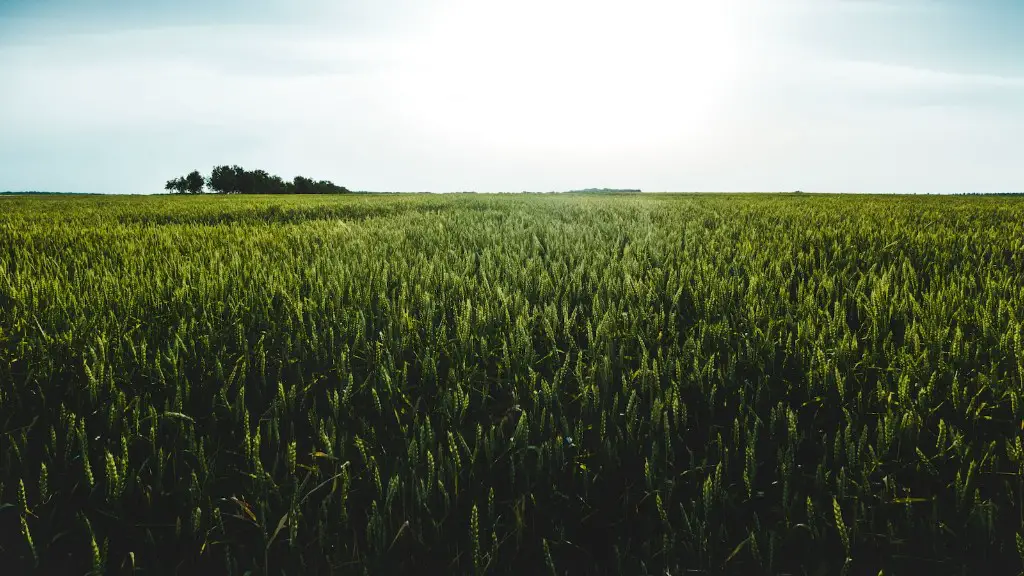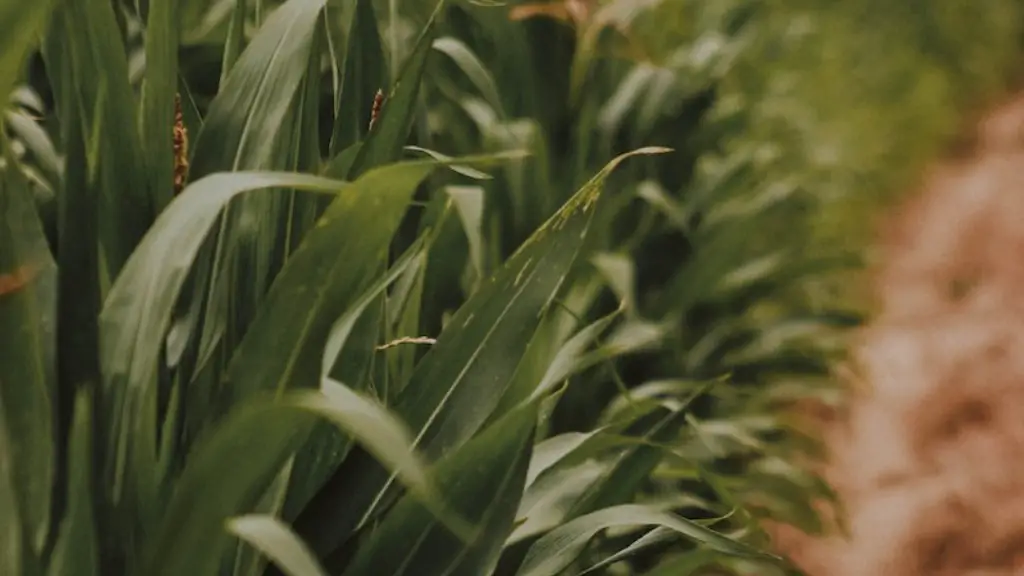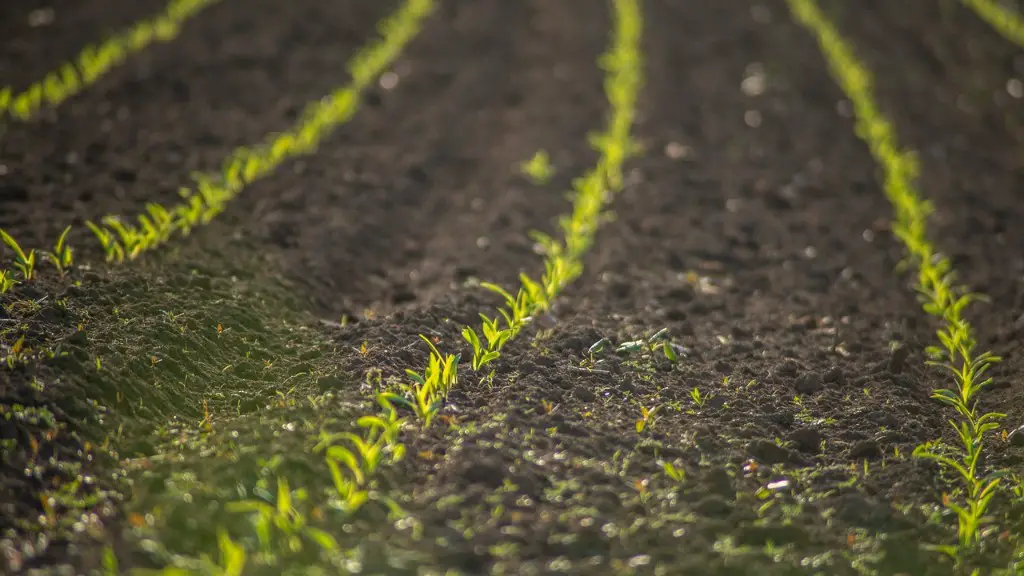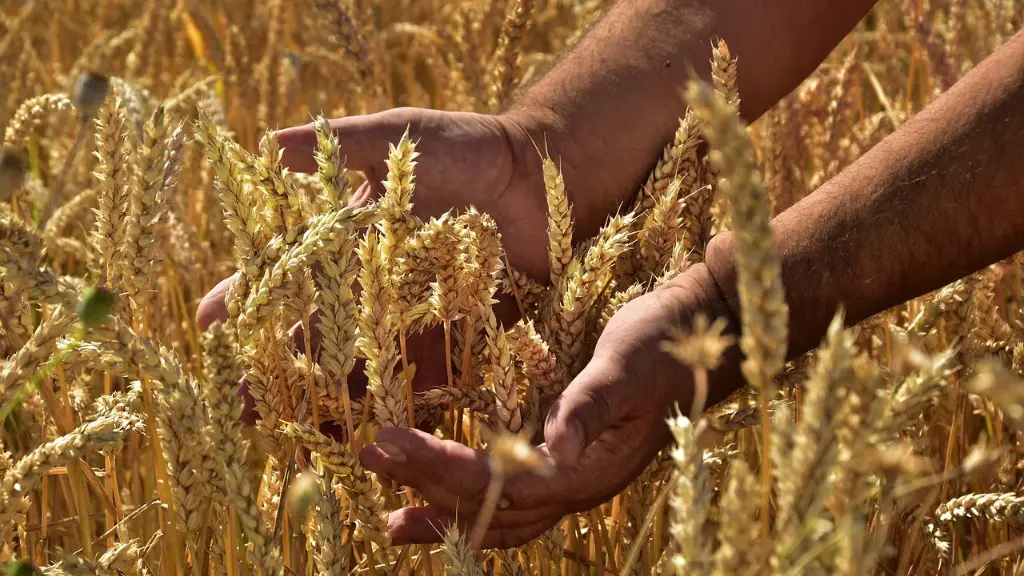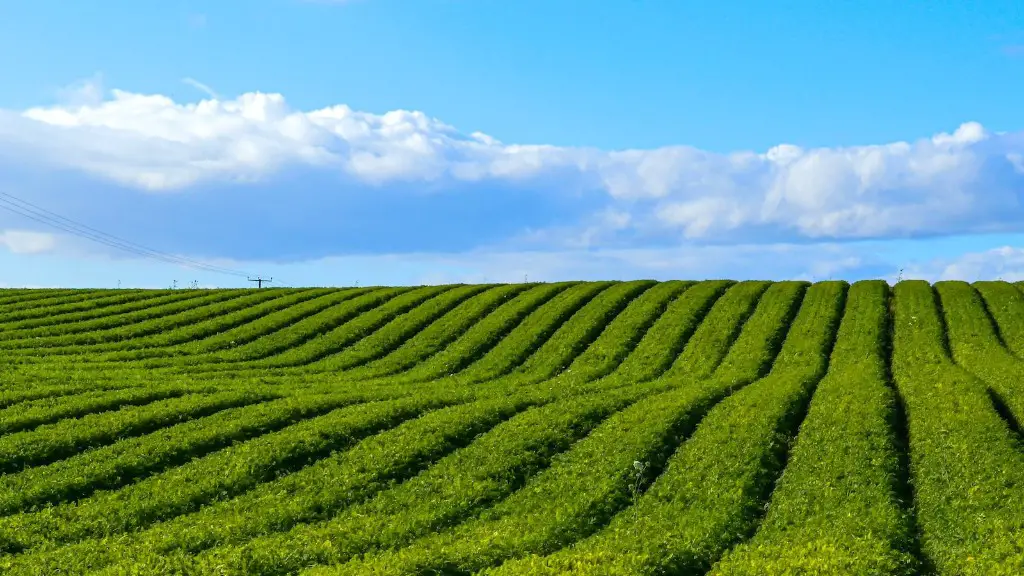There are many things that someone with a degree in sustainable agriculture can do. They can work in many different areas such as farming, food production, environmental education and sustainable tourism. There are many options for someone with this type of degree and the sky is the limit.
There are many options for those with a degree in sustainable agriculture. Some people may choose to go into farming or ranching, while others may work in policy or nonprofit organizations. Some may even choose to teach sustainable agriculture practices to others. No matter what you do with your degree, you will be helping to promote sustainable agriculture practices and systems.
What is the highest paying job in agriculture?
The highest paying jobs in agriculture vary depending on the specific field and experience level, but some of the most common roles include agricultural engineers, agronomists, food scientists, veterinarians, and farm managers. Sales representatives may also earn high salaries in this industry, depending on their experience and the products they are selling.
Agricultural technicians play an important role in the agriculture industry. They are responsible for collecting and germinating seeds, maintaining plant cuttings, and controlling environmental conditions. This allows for farmers to have the best possible chance of success when growing crops. Agricultural technicians may also transplant trees, vegetables, or other plants. This is often done to determine the rate that a plant germinates from seed planted in certain areas.
How profitable is sustainable agriculture
The study found that the farms with regenerative practices were 78% more profitable than conventional plots. This increase in profitability was the result of two main factors: input costs and end markets.
The study found that the farms with regenerative practices had lower input costs, due to the increased efficiency of the soil and the lack of need for external inputs such as fertilizer. In addition, the study found that the end markets for products from regenerative farms were willing to pay a premium for these products, due to the increased sustainability and health benefits.
Overall, the study found that regenerative agriculture is a more profitable and sustainable option for farmers, and that the benefits extend beyond the farm to the wider community.
The demand for graduates in agribusiness, agricultural science, and food science is strong. These fields are important for the economy and for the food supply chain. There are many job opportunities available for graduates in these fields, and the pay is good. There is a lot of potential for career growth in these fields, and for making a difference in the world.
What is the most recognized career in agriculture?
1. Food Scientists: One top paying career in agriculture today is that of a food scientist. The main objective of a food scientist is to ensure that food and food production processes are safe for consumers.
2. Agricultural Engineers: Agricultural engineers work on developing and improving agricultural equipment and machinery. They also work on developing new and more efficient methods of farming.
3. Soil Scientists: Soil scientists study the properties of soil and help farmers to determine the best type of soil for their crops. They also help farmers to manage and improve the quality of their soil.
4. Agricultural Educators: Agricultural educators work to teach people about agriculture and farming. They may work in schools, extension offices, or other educational settings.
5. Agricultural Extension Agents: Agricultural extension agents work with farmers to provide them with information and resources about farming. They also work with other members of the community to educate them about agriculture.
The baccalaureate level is the best level to study agriculture if you want to pursue a career in the field. The best agricultural degrees at this level include agroecology, food systems, environmental sciences/studies, biological sciences, international development, animal science, nutrition & food sciences, and dietetics, nutrition, and food sciences, among others. Each of these programs will prepare you for a specific career in agriculture, so be sure to choose the one that best suits your interests and goals.
Do sustainability jobs pay well?
The average salary for a sustainability officer is $88,261, with more senior positions earning above $100,000. This is a great way for career changers to transition into a green job within a familiar field of work.
Sustainable farming practices are essential to mitigating the effects of climate change. By eliminating the use of fossil fuels and reducing energy use, sustainable farming helps in reducing greenhouse gas emissions, thereby playing a significant role in combating climate change. In addition to being energy efficient, sustainable farming practices also help to conserve water and preserve biodiversity. With the world’s population projected to increase to 9.7 billion by 2050, the need for sustainable food production systems will only become more urgent.
What are 3 types of sustainable agriculture
There are a number of sustainable agriculture methods and farming practices that can be used in order to create a more sustainable and environmentally friendly way of producing food. These methods include permaculture, biodynamic farming, hydroponics and aquaponics, urban agriculture, and agroforestry. Each of these methods has its own set of benefits and drawbacks, so it is important to choose the one that best suits your needs and purposes.
What is sustainable agriculture?
Sustainable agriculture is an approach to food production that aims to reduce the negative environmental impacts of farming while still providing for the food needs of the present. This means producing food in a way that doesn’t deplete the soil or damage the local ecosystem, and using sustainable farming practices to sequester carbon and reduce greenhouse gas emissions.
How can sustainable agriculture reduce emissions?
There are a number of ways in which sustainable agriculture can reduce emissions. One is by using more efficient irrigation systems, which can reduce the amount of water and energy needed to farm. Another is by planting cover crops, which help to prevent soil erosion and capture carbon dioxide from the atmosphere. And finally, sustainable agriculture can also promote agroforestry, which is the practice of growing trees and other plants alongside crops. This helps to create a more diverse and resilient ecosystem, and can also help to mitigate the effects of climate change.
What new technology is being leveraged to promote sustainable agriculture?
There are a number of new technologies that are being used to promote sustainable agriculture. One is precision agriculture, which uses sensors and other data-driven tools to improve the efficiency of farms. This can help to reduce water and energy use,
What is easiest farming to make money?
Livestock is a great way to make money from your land. Animals have a few more expenses and a higher overhead, but they usually bring in top dollar in terms of net income. With proper care and management, livestock can be a profitable venture for any farmer.
There are many elements that can contribute to making agriculture more sustainable. Permaculture is one option that can be employed to create a more self-sufficient and environmentally friendly farm. This approach makes use of principles found in natural ecosystems to create a sustainable and efficient agricultural system. Agroforestry is another sustainable agriculture technique that integrates trees and other shrubs into traditional farming landscapes. This can help to improve soil health, reduce erosion, and create a more diverse and productive farm. Mixed farming is another sustainable agriculture option that combines different types of crops and animals into one system. This can help to improve yields and create a more resilient farm. Crop rotation is another important element of sustainable agriculture. This is the practice of growing different crops in different areas of the farm in order to improve soil health and reduce the risk of pests and diseases.
What are the fastest growing careers in agriculture
The agricultural industry is projected to grow significantly in the next decade, with many new job opportunities opening up in the field. Here are 10 of the fastest-growing jobs in agriculture, food, and natural resources:
1. Animal Caretakers: Projected Job Growth: 1647%
2. Pest Control Workers: Projected Job Growth: 802%
3. Refuse and Recyclable Material Collectors: Projected Job Growth: 718%
4. Agricultural Equipment Operators: Projected Job Growth: 662%
5. Soil and Plant Scientists: Projected Job Growth: 652%
6. Agricultural Inspectors: Projected Job Growth: 608%
7. Arborists and Tree Care Service Workers: Projected Job Growth: 596%
8. Biological Technicians: Projected Job Growth: 582%
9. Agricultural Engineers: Projected Job Growth: 473%
10. Food Science Technicians: Projected Job Growth: 468%
There are many different career opportunities in the field of agriculture. Agricultural extension workers help farmers to adopt new technology and practices. Agricultural engineers develop new equipment and systems to improve farm productivity. Animal scientists conduct research on animal nutrition, breeding, and health. Agricultural economists study the economic factors that affect agriculture, such as market trends, government policies, and farm subsidies. Crop scientists conduct research on crop yield, plant genetics, and pest control. Soil scientists conduct research on soil fertility, tillage, and erosion. Forestry scientists conduct research on tree breeds, forest management, and wildlife habitat. Horticulturists conduct research on plant cultivation, landscape design, and plant pest control.
Can you make a living in agriculture?
Agriculture is a great opportunity for anyone to make an income. There are many career options available in agriculture, and as the world progresses, there are even more ways to make money from agriculture without owning a farm or being physically present on the farm. This is a great industry to get involved in, and there are many ways to make a good living from it.
The Agribusiness Systems pathway prepares students for careers in the management and marketing of agricultural products and services. The Animal Systems pathway prepares students for careers in the production, processing, marketing, and management of animal products. The Environmental Service Systems pathway prepares students for careers in environmental protection and natural resource management. The Food Products & Processing Systems pathway prepares students for careers in the processing, marketing, and distribution of food products. The Natural Resources Systems pathway prepares students for careers in the management and conservation of natural resources. The Plant Systems pathway prepares students for careers in the production, processing, and marketing of plant products. The Power, Structural, and Technical Systems pathway prepares students for careers in the design, construction, maintenance, and operation of power, structural, and technical systems.
Warp Up
There are many different things that you can do with a sustainable agriculture degree. Some examples include working as a farmer, rancher, agricultural scientist, or food system manager. There are many different fields within sustainable agriculture, so you can specialize in an area that interests you the most. You can also use your degree to advocate for sustainable agriculture policies or to educate others about the importance of sustainable agriculture.
A sustainable agriculture degree can lead to many different career paths, all of which help to promote and support sustainable agriculture practices. With a degree in sustainable agriculture, you could work in a farming or ranching operation, help to develop and manage sustainable agriculture projects, or even teach others about sustainable agriculture methods. No matter what you do with your degree, you will be playing an important role in protecting our natural resources and ensuring that our food supply is safe and healthy for generations to come.
